AGRICADO FARMS WORKING TOWARDS GLOBALG.A.P. COMPLIANCE
- 19/10/2020
- Posted by: Gaetan Dermien
- Category: Uganda
No Comments As part of its Fit For Market programme, COLEACP supported Agricado Farms to improve their quality management system in order to reach compliance with the GLOBALG.A.P. quality standard. A local expert first assessed the current practices in place, and then provided training to their quality management team. Agricado Farms is on its way to reach compliance with the GLOBALG.A.P. quality standard. Agricado Farms, a new fresh fruits and vegetable company located in Kampala, targets the European and Middle Eastern markets… +
As part of its Fit For Market programme, COLEACP supported Agricado Farms to improve their quality management system in order to reach compliance with the GLOBALG.A.P. quality standard. A local expert first assessed the current practices in place, and then provided training to their quality management team. Agricado Farms is on its way to reach compliance with the GLOBALG.A.P. quality standard. Agricado Farms, a new fresh fruits and vegetable company located in Kampala, targets the European and Middle Eastern markets… +FRESH SALONE, RESUMPTION OF EXPORTS TO BRUSSELS
- 10/10/2020
- Posted by: Gaetan Dermien
- Category: Sierra Leone
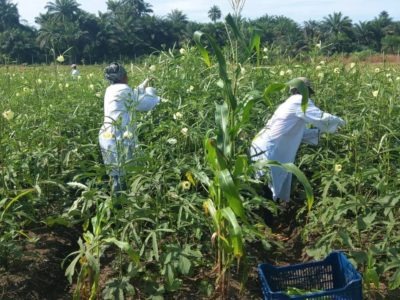 Fresh Salone – a Sierra Leonean fruit and vegetable production and export company, and COLEACP partner – has made its first shipment of habaneros and other ethnic vegetables (African eggplant, okra, leafy vegetables) to Brussels since the new European Directives came into force and flights were resumed post-COVID-19. This success follows several COLEACP Fit For Market programme activities in recent months, including digital training for the private sector on identification and management of false codling moth (FCM) and whitefly; and… +
Fresh Salone – a Sierra Leonean fruit and vegetable production and export company, and COLEACP partner – has made its first shipment of habaneros and other ethnic vegetables (African eggplant, okra, leafy vegetables) to Brussels since the new European Directives came into force and flights were resumed post-COVID-19. This success follows several COLEACP Fit For Market programme activities in recent months, including digital training for the private sector on identification and management of false codling moth (FCM) and whitefly; and… +Integrated management for false codling moth control
- 08/10/2020
- Posted by: Gaetan Dermien
- Category: Africa, Gambia, Ghana, News, Nigeria, Zimbabwe
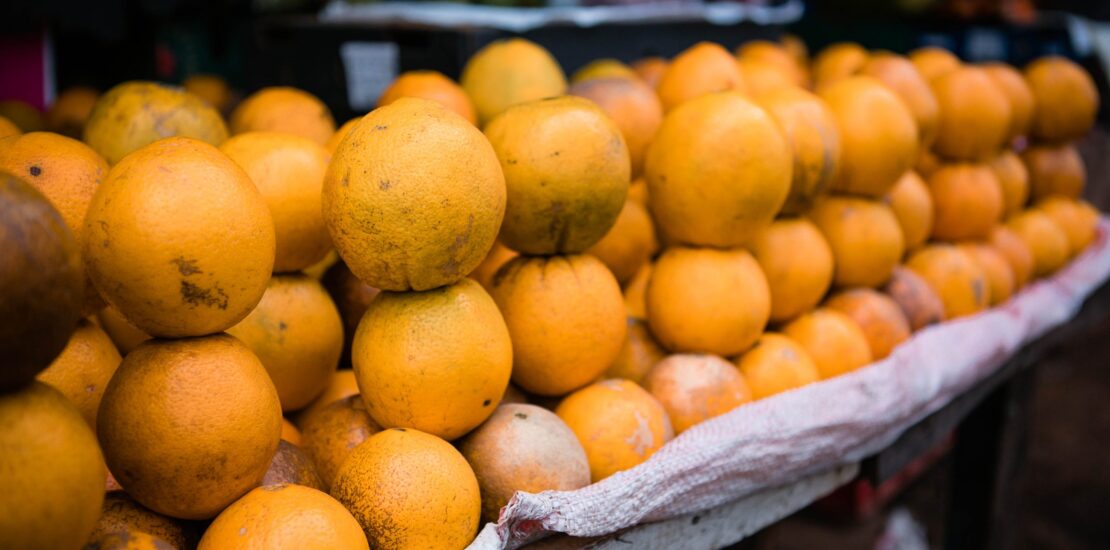 Virtual training on “Integrated management measures for false codling moth (Thaumatotibia leucotreta) control” is being provided for both private sector (managers of packaging stations/production) and public service (phytosanitary inspectors) through COLEACP’s two Fit For Market programmes. 30 participants from The Gambia, Ghana, Nigeria and Zimbabwe are learning more about the new EU Plant Health Regulation regarding FCM; the use of FCM protocols along the value chain, including data-collection forms; the responsibilities of each player along the value chain towards FCM… +
Virtual training on “Integrated management measures for false codling moth (Thaumatotibia leucotreta) control” is being provided for both private sector (managers of packaging stations/production) and public service (phytosanitary inspectors) through COLEACP’s two Fit For Market programmes. 30 participants from The Gambia, Ghana, Nigeria and Zimbabwe are learning more about the new EU Plant Health Regulation regarding FCM; the use of FCM protocols along the value chain, including data-collection forms; the responsibilities of each player along the value chain towards FCM… +Covid-19 E-Coaching session for Aspire Co-operative
- 06/10/2020
- Posted by: Sandra Borma
- Category: Brassicas, News, Tomatoes, Zimbabwe
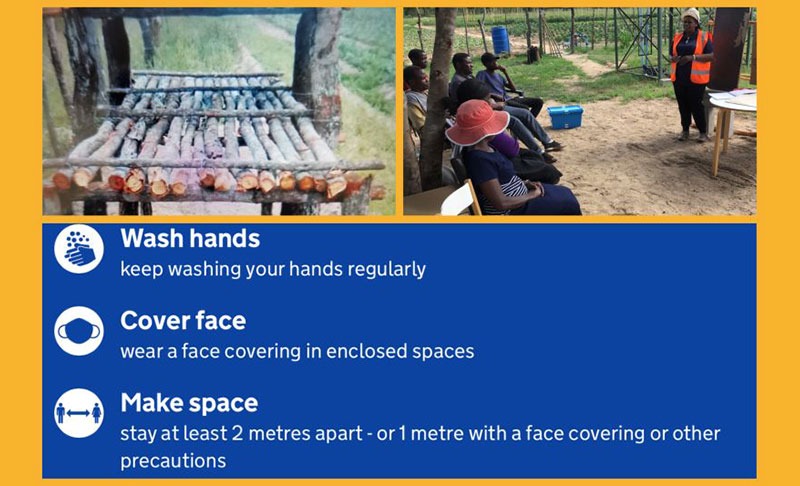 Horticultural producer Aspire Cooperative in Zimbabwe enjoyed online coaching on implementing Covid-19 mitigation measures. Thanks to the e-coaching sessions, the director reported having a better understanding of how to handle food more safely in the context of Covid-19, leading to structural improvements in the company’s food safety management system.… +
Horticultural producer Aspire Cooperative in Zimbabwe enjoyed online coaching on implementing Covid-19 mitigation measures. Thanks to the e-coaching sessions, the director reported having a better understanding of how to handle food more safely in the context of Covid-19, leading to structural improvements in the company’s food safety management system.… +Pest free areas for production and export of curry leaves in Ghana
- 30/09/2020
- Posted by: Gaetan Dermien
- Category: Ghana, News
 The Plant Protection and Regulatory Services Directorate of the Ministry of Food and Agriculture, in collaboration with COLEACP, organised a workshop in Accra on establishing and maintaining pest free areas for the production and export of curry leaves in Ghana. The workshop brought together officials from the Vegetable Producers and Exporters Association of Ghana (VEPEAG), Ministry of Trade and Industries, Ghana Export Promotion Authority, and the Directorate of Crop Services of the Ministry of Food and Agriculture. Other stakeholders also… +
The Plant Protection and Regulatory Services Directorate of the Ministry of Food and Agriculture, in collaboration with COLEACP, organised a workshop in Accra on establishing and maintaining pest free areas for the production and export of curry leaves in Ghana. The workshop brought together officials from the Vegetable Producers and Exporters Association of Ghana (VEPEAG), Ministry of Trade and Industries, Ghana Export Promotion Authority, and the Directorate of Crop Services of the Ministry of Food and Agriculture. Other stakeholders also… +COLEACP and NPPOs share the results of an internal audit system
- 29/09/2020
- Posted by: Gaetan Dermien
- Category: Benin, Burkina Faso, Cameroon, Côte d'Ivoire, Dominican Republic, Eswatini, Gambia, Ghana, Guinea, Kenya, Madagascar, Mali, News, Senegal, Sierra Leone, Togo, Uganda, Zimbabwe
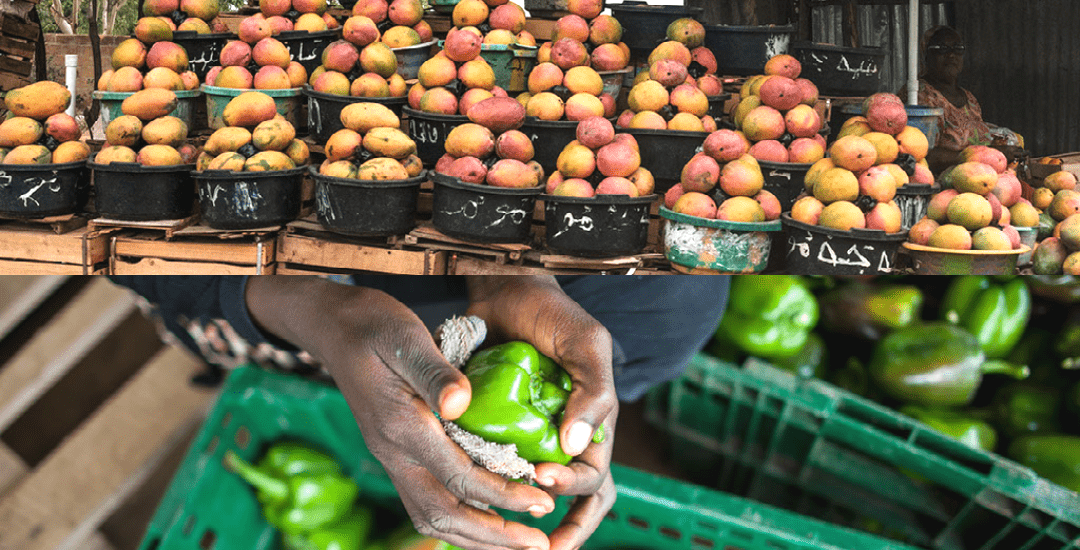 A recent e-meeting with NPPOs focused on setting up an internal audit system, supported by COLEACP’s Fit For Market SPS programme. The internal audit system relates to support for the preparation and implementation of dossiers (systemic approaches) submitted to the EU’s DG SANTE, with regard to the requirements of the new EU Plant Health Regulation for control of quarantine pests on certain fruit and vegetables. The meeting was attended by Directors and representatives of NPPOs from many countries including Benin,… +
A recent e-meeting with NPPOs focused on setting up an internal audit system, supported by COLEACP’s Fit For Market SPS programme. The internal audit system relates to support for the preparation and implementation of dossiers (systemic approaches) submitted to the EU’s DG SANTE, with regard to the requirements of the new EU Plant Health Regulation for control of quarantine pests on certain fruit and vegetables. The meeting was attended by Directors and representatives of NPPOs from many countries including Benin,… +Training for Africado on HACCP methodology
- 29/09/2020
- Posted by: Sandra Borma
- Category: Avocados, News, Tanzania
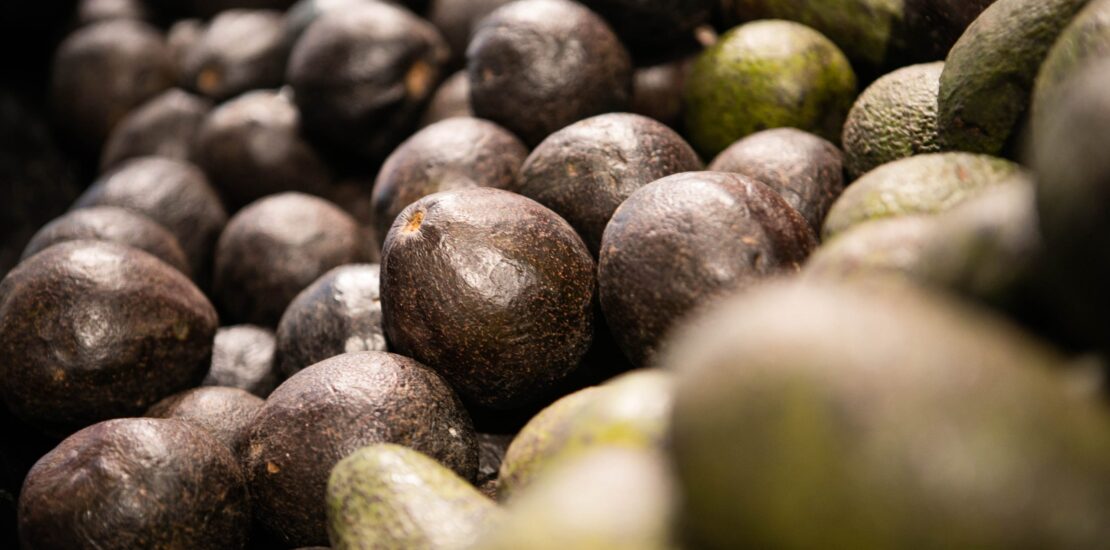 As part of COLEACP’s Fit For Market programme, a Kenyan expert provided remote training to Africado, one of the biggest avocado producers in the north of Tanzania. The 5-day training on HACCP methodology, within the Food Safety and Hygiene theme, involved live-streamed sessions as well as regular homework for participants.… +
As part of COLEACP’s Fit For Market programme, a Kenyan expert provided remote training to Africado, one of the biggest avocado producers in the north of Tanzania. The 5-day training on HACCP methodology, within the Food Safety and Hygiene theme, involved live-streamed sessions as well as regular homework for participants.… +Call for expression of interest
- 25/09/2020
- Posted by: Gaetan Dermien
- Category: Ethiopia
 In the context of the COLEACP/Fit for Market (FFM SPS) : Strengthening sanitary and phytosanitary systems of the ACP horticultural sector, funded by the 11th European Development Fund, COLEACP is launching a new call for tenders concerning the provision of “Support to the COLEACP team for the implementation and monitoring of COLEACP programme activities in Ethiopia” ref. 201169. You will find here all information related to this service procurement notice, including the terms of reference (point 8. Objective, description and… +
In the context of the COLEACP/Fit for Market (FFM SPS) : Strengthening sanitary and phytosanitary systems of the ACP horticultural sector, funded by the 11th European Development Fund, COLEACP is launching a new call for tenders concerning the provision of “Support to the COLEACP team for the implementation and monitoring of COLEACP programme activities in Ethiopia” ref. 201169. You will find here all information related to this service procurement notice, including the terms of reference (point 8. Objective, description and… +NExT Kenya: coaching Kenyan flower companies on FCM management
- 25/09/2020
- Posted by: Sandra Borma
- Category: Kenya, News
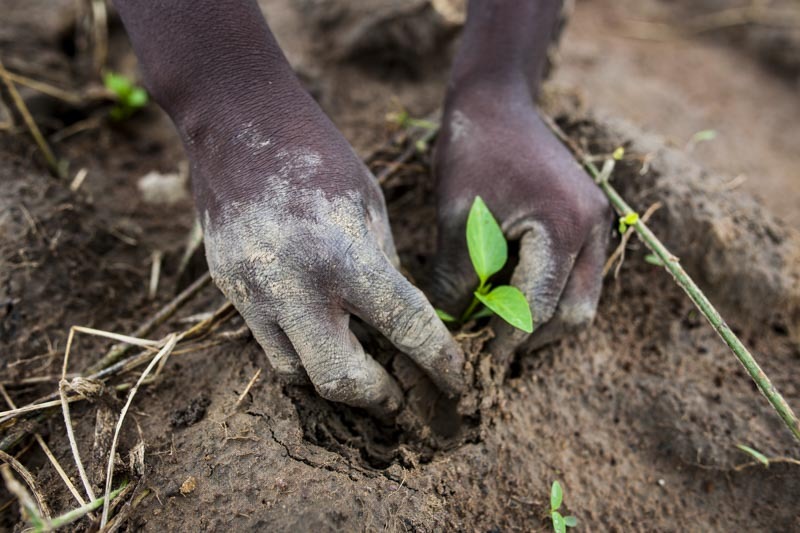 The Kenya Flower Council, in collaboration with the Fresh Produce Exporters Association of Kenya (FPEAK), Fresh Produce Consortium Kenya (FPC-Kenya), Kenya Plant Health Inspectorate Service (KEPHIS), Kenya Agricultural & Livestock Research Organisation (KALRO), and COLEACP’s Fit For Market SPS and NExT Kenya programmes have set up a series of regional training/sensitisation forums for all producers across the country, aiming at a common approach across the industry to help drastically reduce interceptions of false codling moth (FCM) on roses exported to… +
The Kenya Flower Council, in collaboration with the Fresh Produce Exporters Association of Kenya (FPEAK), Fresh Produce Consortium Kenya (FPC-Kenya), Kenya Plant Health Inspectorate Service (KEPHIS), Kenya Agricultural & Livestock Research Organisation (KALRO), and COLEACP’s Fit For Market SPS and NExT Kenya programmes have set up a series of regional training/sensitisation forums for all producers across the country, aiming at a common approach across the industry to help drastically reduce interceptions of false codling moth (FCM) on roses exported to… +Impacts of Covid-19 on horticultural SMEs in Ghana
- 24/09/2020
- Posted by: Sandra Borma
- Category: Ghana, News
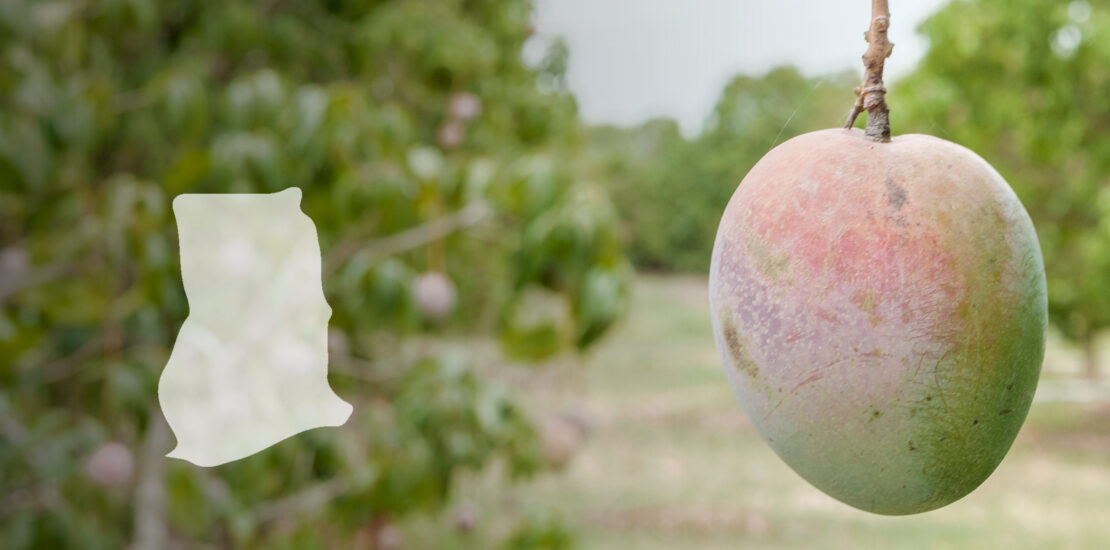 COLEACP’s surveys in the early months of the pandemic aimed to gather first-hand information on the impact of Covid-19 on operators of horticultural businesses, and assess how support from COLEACP and other partners could best be redirected as a response. These were not intended to be systematic surveys – respondents were self-selecting, and the operators taking part varied greatly in size and operation. But the results provide an illuminating qualitative snapshot of the key impacts of Covid-19 to date, and… +
COLEACP’s surveys in the early months of the pandemic aimed to gather first-hand information on the impact of Covid-19 on operators of horticultural businesses, and assess how support from COLEACP and other partners could best be redirected as a response. These were not intended to be systematic surveys – respondents were self-selecting, and the operators taking part varied greatly in size and operation. But the results provide an illuminating qualitative snapshot of the key impacts of Covid-19 to date, and… +
